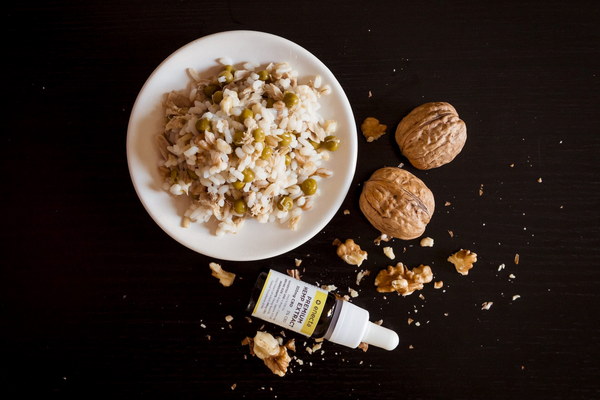Nurturing Your Little One's Health A Comprehensive Guide to Managing Pneumonia in Children
Managing pneumonia in children can be a daunting task for parents and caregivers. Pneumonia, an infection that inflames the air sacs in one or both lungs, can be severe if not treated promptly. In this article, we'll discuss how to care for a child with pneumonia and provide strategies for promoting their recovery and overall well-being.
Early Detection and Treatment
1. Identify the Symptoms: Recognize the early signs of pneumonia, which may include a persistent cough, difficulty breathing, fever, chest pain, and bluish lips or face. If you suspect pneumonia, seek medical attention immediately.
2. Prescription Medications: Your child's healthcare provider will likely prescribe antibiotics to combat the infection. Ensure your child completes the full course of medication, even if they start to feel better before it's finished.
Comfort and Support

1. Rest: Encourage your child to rest as much as possible. Pneumonia can be tiring, and adequate rest is crucial for recovery.
2. Hydration: Keep your child well-hydrated by providing plenty of fluids. Water, clear broths, and Pedialyte are great options. Hydration helps thin mucus and makes it easier to cough up.
3. Warmth: Keep your child warm and comfortable. Use blankets and adjust the room temperature to a level that is not too hot or too cold.
Breathing and Air Quality
1. Breathing Exercises: Teach your child simple breathing exercises that can help improve lung function. These may include deep breathing, pursed-lip breathing, and diaphragmatic breathing.
2. Air Quality: Ensure your child's environment is smoke-free and well-ventilated. Use a humidifier to add moisture to the air, which can help ease respiratory symptoms.
Nutritional Support
1. Balanced Diet: Encourage a balanced diet that includes fruits, vegetables, whole grains, and lean proteins. A nutritious diet supports the immune system and aids in recovery.
2. Supplements: In some cases, your child's healthcare provider may recommend supplements such as vitamin C or D to support their immune system.
Emotional Support
1. Calm Environment: Create a calm and supportive environment for your child. Pneumonia can be frightening, and a comforting presence can make a significant difference.
2. Communication: Encourage open communication with your child. Ask them about their feelings and reassure them that they are not alone in this process.
Follow-Up and Prevention
1. Regular Check-Ups: Keep all scheduled follow-up appointments with your child's healthcare provider to monitor their recovery and address any concerns.
2. Prevent Future Infections: Teach your child about proper hygiene, such as washing hands regularly and covering their mouth and nose when they cough or sneeze. Vaccinations, such as the pneumococcal vaccine, can also protect against certain types of pneumonia.
In conclusion, managing pneumonia in children requires a combination of early detection, appropriate medical treatment, and supportive care at home. By following these guidelines and providing a nurturing environment, you can help your little one recover from pneumonia and return to their normal activities. Remember, open communication, patience, and love are the cornerstones of your child's healing journey.









